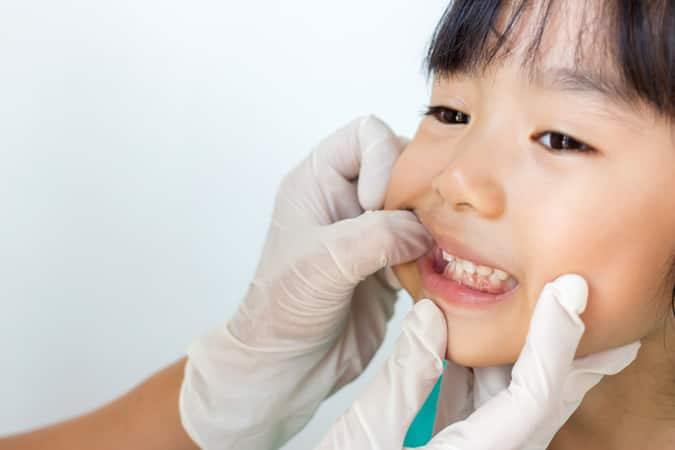-
-

ADULT ORTHODONTICS
Should You Use Mouthwash Before or After Brushing?Brushing and flossing are the foundation of a good oral hygiene routine, but mouthwash can also be a useful addition...

SELECTING DENTAL PRODUCTS
Soft Vs. Hard Toothbrush: Which One Should You Use?The toothbrush has come a long way. As the American Dental Association (ADA) notes...
-
Science & Innovation


What teething remedies are safe for babies? It is not easy watching your child deal with the discomfort that can come with the arrival of baby's first teeth. When primary teeth begin to erupt around six months of age, a little one's gums can become sore and tender. A teething baby may become irritable and fussy. He may try to suck or chew on anything he can find for relief. You can ease your baby's discomfort with simple, safe remedies.
Cool Teething Rings
A cool, but not frozen, clean teething ring is excellent for soothing baby's tender gums. Your baby can chew on the ring for a little pain relief. According to the American Academy of Pediatrics, the cold of a refrigerated teething ring or other item can act as an anesthetic. If you don't have a ring, you can also use a small, clean spoon. Leave it in the refrigerator until it is cool and then gently rub baby's gums with the cool spoon. Another option is to chill his pacifier in the refrigerator and then let him suck on it for relief.
Gum Massage
The simplest of teething remedies is a gum massage. Rub your baby's gums with your clean finger. For the anesthetic effect of the cold in addition to the soothing effect of the pressure, use a cool, wet cloth or gauze to massage his gums.
What Not to Use for Teething Discomfort
Cool teething rings and gentle massage are safe teething remedies. What you should not do is apply a teething gel that contains benzocaine to your baby's gums. Benzocaine is found in some over-the-counter pain relieving products. The Food and Drug Administration has warned against the use of this ingredient for children under the age of 2 because of its believed link to a rare but potentially dangerous disorder known as methemoglobenemia. If cool objects and massage do not seem to relieve your teething baby's symptoms, then talk to your dentist or pediatrician about other options. He or she can recommend a safe salve that can diminish the discomfort.
Teething is not only a time to soothe your child's symptoms, it is also marks the beginning of a lifetime of good oral hygiene. Schedule an appointment with your dentist as soon as the first tooth erupts. Start brushing with a soft-bristled brush and a little water. You can talk to your dentist about when to begin using a fluoride-free toothpaste.
Related Articles


Even if you had cavities when you were young, your child doesn't have to develop them. Find out how to protect kids' teeth from tooth decay.

Related Products

Helping dental professionals
More professionals across the world trust Colgate. Find resources, products, and information to give your patients a healthier future








